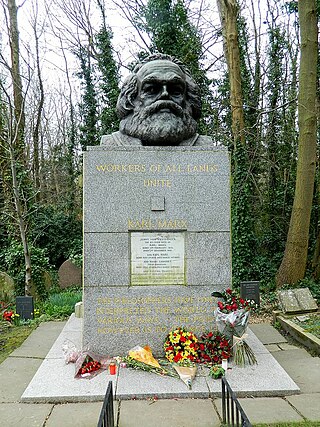Related Research Articles

The Independent Labour Party (ILP) was a British political party of the left, established in 1893 at a conference in Bradford, after local and national dissatisfaction with the Liberals' apparent reluctance to endorse working-class candidates, representing the interests of the majority. A sitting independent MP and prominent union organiser, Keir Hardie, became its first chairman.

The Workers' Socialist Federation was a socialist political party in the United Kingdom, led by Sylvia Pankhurst. Under many different names, it gradually broadened its politics from a focus on women's suffrage to eventually become a left communist grouping.

Shapurji Dorabji Saklatvala was a communist activist and British politician of Indian Parsi heritage. Saklatvala is notable for being the first person of Indian heritage to become a British Member of Parliament (MP) for the UK Labour Party, and was also among the few members of the Communist Party of Great Britain (CPGB) to serve as an MP.

Elizabeth Margaret Braddock was a British Labour Party politician who served as Member of Parliament (MP) for the Liverpool Exchange division from 1945 to 1970. She was a member of Liverpool County Borough Council from 1930 to 1961. Although she never held office in government, she won a national reputation for her forthright campaigns in connection with housing, public health and other social issues.

Thomas Alfred Jackson was a founding member of the Socialist Party of Great Britain and later the Communist Party of Great Britain. He was a leading communist activist and newspaper editor and worked variously as a party functionary and a freelance lecturer.

The Sheffield Trades and Labour Council, usually known as the Sheffield Trades Council, is a labour organisation uniting trade unionists in Sheffield.
Thomas Hargrave Bell was a Scottish socialist politician and trade unionist. He is best remembered as a founding member of both the Socialist Labour Party and the Communist Party of Great Britain and as the editor of Communist Review, the official monthly magazine of the latter.
Chris Braithwaite, also known as Chris Jones, was a black Barbadian who was leader of the Colonial Seamen's Association in the 1930s.
Jacob Gaster, known as Jack Gaster, was a British communist solicitor and politician.

The British Socialist Party (BSP) was a Marxist political organisation established in Great Britain in 1911. Following a protracted period of factional struggle, in 1916 the party's anti-war forces gained decisive control of the party and saw the defection of its pro-war right wing. After the victory of the Bolshevik Revolution in Russia at the end of 1917 and the termination of the First World War the following year, the BSP emerged as an explicitly revolutionary socialist organisation. It negotiated with other radical groups in an effort to establish a unified communist organisation, an effort which culminated in August 1920 with the establishment of the Communist Party of Great Britain. The youth organisation the Young Socialist League was affiliated with the party.
Alexander Geddes was a Scottish communist activist.
Fred Shaw was a British socialist activist and trade unionist.

Alfred Barton was a British socialist politician.
Jim Gardner was a Scottish trade unionist.
Sir Richard Coppock was a British trade unionist and politician.

William McLaine (1891–1960) was an engineer, Marxist and trade union activist.
Alexander Gossip was a Scottish trade union leader and political activist.
John McKenzie McBain was a Scottish trade unionist and political activist.

Far-left politics in the United Kingdom have existed since at least the 1840s, with the formation of various organisations following ideologies such as Marxism, revolutionary socialism, communism, anarchism and syndicalism.
Arthur George Field was a British trade unionist and socialist activist.
References
- 1 2 3 4 Parker, Lawrence (2018). Communists and Labour: The National Left-Wing Movement 1925-1929. Lulu. ISBN 0244091870.
- 1 2 Moloney, Deidre (2012). National Insecurities: Immigrants and U.S. Deportation Policy since 1882. University of North Carolina Press. p. 180. ISBN 0807882615.
- ↑ "Americanism: A World Menace" (PDF).
- ↑ Howard, Thomas Albert (2011). God and the Atlantic: America, Europe, and the Religious Divide. Oxford: Oxford University Press. p. 116. ISBN 0199565511.
- ↑ "Woolwich nominations". Manchester Guardian. 2 November 1943.
- ↑ "Woolwich seat". Manchester Guardian. 11 November 1943.
- ↑ Independent Labour Party, Annual Report of the National Administrative Council, 1946 to 1952
- ↑ James Millar (1949). An Outline of Economics:Publishers Note. Tillicoultry: National Council of Labour Colleges.